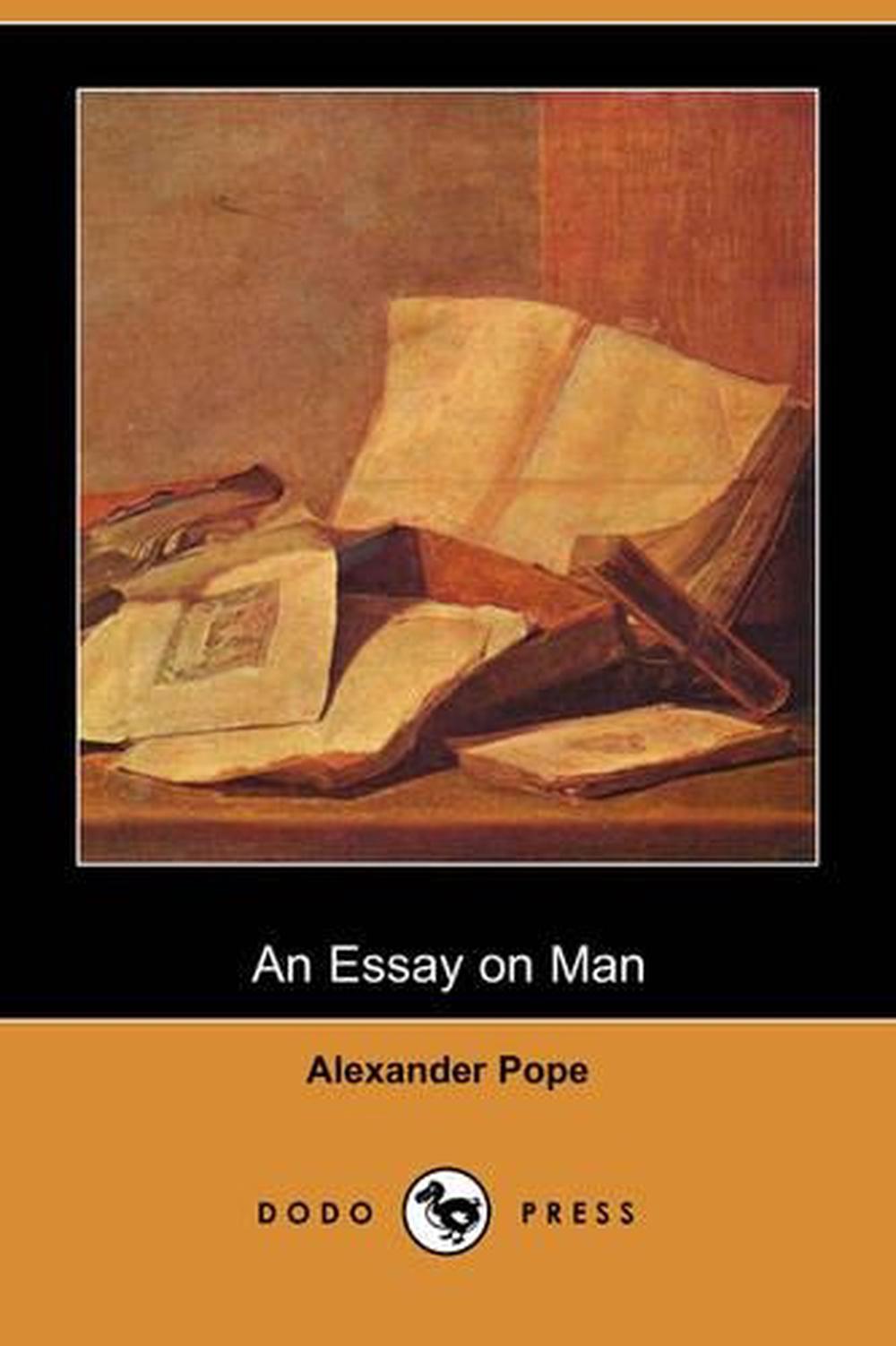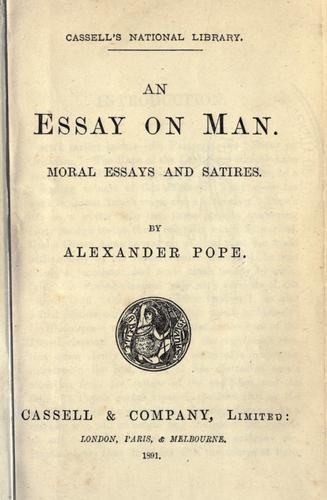Overview of “An Essay on Man”
· Pope continues to assert that Man will be happiest if he accepts that his fate is preordained. In the line, “Our proper bliss depends on what we blame”(Pope 9), Pope directs the conversation onto Man, suggesting that instead of questioning God, he should question himself and the role that he plays in creating the conditions of the world An Essay on Man By: Alexander Pope “Is the great chain, that draws all to agree, And drawn supports, upheld by God, or Thee?” – Alexander Pope (From “An Essay on Man”) “Then say not Man’s imperfect, Heav’n in fault; Say rather, Man’s as perfect as he ought.” – Alexander Pope (From “An Essay on Man”) “All are but parts of one stupendous whole The work that more than any other popularized the optimistic philosophy, not only in England but throughout Europe, was Alexander Pope's Essay on Man (), a rationalistic effort to justify the ways of God to man philosophically
Navigation menu
The work that more than any other popularized the optimistic philosophy, not only in England but throughout Europe, was Alexander Pope's Essay on Man (), a rationalistic effort to justify the ways of God to man philosophically · Pope continues to assert that Man will be happiest if he accepts that his fate is preordained. In the line, “Our proper bliss depends on what we blame”(Pope 9), Pope directs the conversation onto Man, suggesting that instead of questioning God, he should question himself and the role that he plays in creating the conditions of the world · in the opening lines of the essay on man [34, 37], pope proposes to ‘vindicate the ways of god to man’ in a sweeping survey of god’s ‘mighty maze’, and thus conspicuously picks up the mantle of poetic and theological authority from milton, whose paradise lost sought to ‘justify the ways of god to man’ (references to ‘a. wild, where weeds and

INTRODUCTION.
The work that more than any other popularized the optimistic philosophy, not only in England but throughout Europe, was Alexander Pope's Essay on Man (), a rationalistic effort to justify the ways of God to man philosophically An Essay on Man. Epistle III—Of the Nature and State of Man with Respect to Society. Alexander Pope (–) H ERE then we rest; ‘The universal cause. Acts to one end, but acts by various laws.’. In all the madness of superfluous health, The trim of pride, the impudence of wealth, Let this great truth be present night and day; · In , the year of publication of the Third Epistle of the “Essay on Man,” Pope published his Moral Essay of the “Characters of Men.” In followed the Fourth Epistle of the “Essay on Man;” and in the “Characters of Women,” addressed to Martha Blount, the woman whom Pope loved, though he was withheld by a frail body from marriage

POPE’S POEMS.
An Essay on Man, philosophical essay written in heroic couplets of iambic pentameter by Alexander Pope, published in – It was conceived as part of a larger work that Pope never completed. The poem consists of four epistles. The first epistle surveys relations between humans and the universe; the second discusses humans as individuals An Essay on Man. Epistle III—Of the Nature and State of Man with Respect to Society. Alexander Pope (–) H ERE then we rest; ‘The universal cause. Acts to one end, but acts by various laws.’. In all the madness of superfluous health, The trim of pride, the impudence of wealth, Let this great truth be present night and day; · In , the year of publication of the Third Epistle of the “Essay on Man,” Pope published his Moral Essay of the “Characters of Men.” In followed the Fourth Epistle of the “Essay on Man;” and in the “Characters of Women,” addressed to Martha Blount, the woman whom Pope loved, though he was withheld by a frail body from marriage

Background on Alexander Pope
· Pope continues to assert that Man will be happiest if he accepts that his fate is preordained. In the line, “Our proper bliss depends on what we blame”(Pope 9), Pope directs the conversation onto Man, suggesting that instead of questioning God, he should question himself and the role that he plays in creating the conditions of the world An Essay on Man, philosophical essay written in heroic couplets of iambic pentameter by Alexander Pope, published in – It was conceived as part of a larger work that Pope never completed. The poem consists of four epistles. The first epistle surveys relations between humans and the universe; the second discusses humans as individuals · Alexander Pope's poem, An Essay on Man, was published in during the Enlightenment era and is famous for its portrayal of the human condition. Explore the context of the poem through a summary
No comments:
Post a Comment